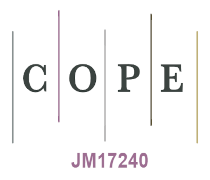Uciążliwość i psychologiczne koszty pracy. Negatywne aspekty funkcjonowania w roli właściciela firmy
DOI:
https://doi.org/10.18778/1427-969X.12.05Słowa kluczowe:
job onerousness, psychological costs of workAbstrakt
In the field of work psychology there are posed questions and solved problems which concern individual effectiveness and satisfaction in one's occupational activity. Job is many times related with onerousness, the size of which is modified by personal and situational determinants. The current article contains presentation of theoretical and empirical analyses regarding job onerousness characteristic for the situation of managing one's own enterprise. Two aspects of that onerousness have been distinguished: perceived onerousness (job onerousness perception) and onerousness experienced as psychological costs (psychological costs of work). Researches have been made to examine whether these aspects are modified by some other determinants (both personal and situational determinants have been included). The performed analyses have proved that perceived onerousness depends on temporary engagement in job and financial gratification, and psychological costs of work are determined by neuroticism mainly.
Bibliografia
Antonovsky A. (1995), Jak rozwikłać tajemnicę zdrowia, Wydawnictwo Fundacji IpiN, Warszawa
Google Scholar
Bańka A. (1996), Psychopatologia pracy, Wydawnictwo Gemini, Poznań
Google Scholar
Bańka A. (2000), Psychologia pracy, [w:] J. Strelau (red.), Psychologia. Podręcznik akademicki, GWP, Gdańsk: 3, 283–320
Google Scholar
Cieślak R. (1998), Wsparcie społeczne a stres w pracy kierowniczej, „Czasopismo Psychologiczne”, 4, 1, 29–46
Google Scholar
Cooper C. L., Marshall J. (1987), Źródła stresu w pracy kierowniczej i umysłowej, [w:] C. L. Cooper, Stres w pracy, PWN, Warszawa, 123–159
Google Scholar
Franaszuk I., Gadomska A. (1977), Analiza obciążenia psychicznego podczas pracy, [w:] A. Hansen (red.), Ergonomiczna analiza uciążliwości pracy, Warszawa
Google Scholar
Karney J. E. (1998), Człowiek i praca, Międzynarodowa Szkoła Menedżerów, Warszawa
Google Scholar
Kuhl J. (1984), Volitional aspects of achievement motivation and learned helplessness: Toward a comprehensive theory of action control, [w:] B. A. Maher (red.), Progress in experi-mental personality research, Academic Press, New York, 99–171
Google Scholar
DOI: https://doi.org/10.1016/B978-0-12-541413-5.50007-3
Lazarus R. S., Folkman S. (1984), Stress Appraisal and Coping, Springer, New York
Google Scholar
Marek T. (1995), Stres i obciążenie psychiczne pracą, „Ergonomia”, 18, 2, 159–171
Google Scholar
Marek T. (1999), Werońska koncepcja źródeł stresu, [w:] J. W. Terelak (red.), Źródła stresu, Wyd. Akademii Teologii Katolickiej, Warszawa
Google Scholar
Marek T. (2000), Stres i zmęczenie psychiczne w procesie pracy, „Czasopismo Psychologiczne”, 6, 1–2, 35–40
Google Scholar
Marszał-Wiśniewska M. (1999), Siła woli a temperament, WIP PAN, Warszawa
Google Scholar
Obłój K. (1993), Strategia sukcesu firmy, PWE, Warszawa
Google Scholar
Strelau J. (1998), Psychologia temperamentu, Wydawnictwo Naukowe PWN, Warszawa
Google Scholar
Tomaszewski T. (1975), Psychologia, PWN, Warszawa
Google Scholar
Tyszka T. (2004), Psychologia ekonomiczna, GWP, Gdańsk
Google Scholar
Van Harrison R. (1987), Indywidualno-środowiskowe dopasowanie a stres w pracy, [w:] C. L. Cooper (red.), Stres w pracy, PWN, Warszawa, 260–303
Google Scholar
Warneryd K. E. (1988), The Psychology of Innovative Enterpreneuship, [w:] W. F. van Raaij, G. M. Veldhoven, K. E. Wärneryd (eds), Handbook of Economic Psychol-ogy, Kluwer, Dordrecht, 405–447
Google Scholar
Zawadzki B., Strelau J., Szczepaniak P., Śliwińska M. (1998), Inwentarz osobowości NEO-FFI Costy i McCrae, PTP, Warszawa
Google Scholar
Zaleśkiewicz T. (2004), Przedsiębiorczość i podejmowanie ryzyka, [w:] T. Tyszka (red.), Psychologia ekonomiczna, GWP, Gdańsk, 303–333
Google Scholar
Zuber-Dzikowa L. (1991), Człowiek w sytuacjach kosztorodnych. Doświadczanie psychologicznych kosztów aktywności zawodowej, [w:] Z. Ratajczak, W. Wosińska (red.), Teoria sytuacji a badanie aktywności człowieka, Uniwersytet Śląski, Katowice, 78–93
Google Scholar
Pobrania
Opublikowane
Jak cytować
Numer
Dział
Licencja

Utwór dostępny jest na licencji Creative Commons Uznanie autorstwa – Użycie niekomercyjne – Bez utworów zależnych 4.0 Międzynarodowe.








